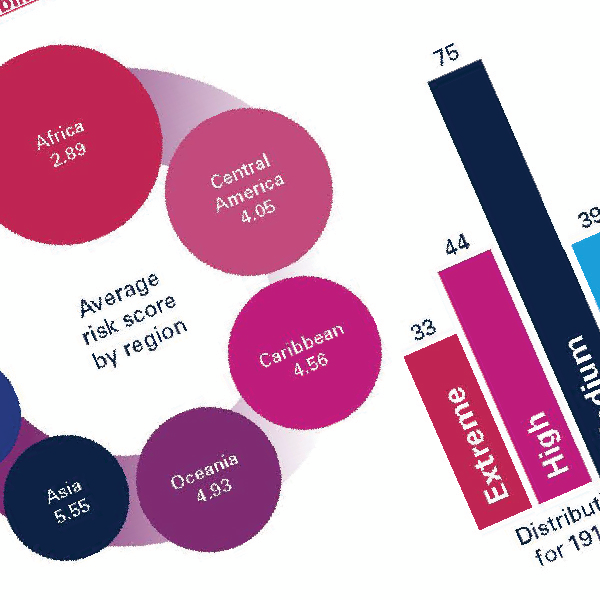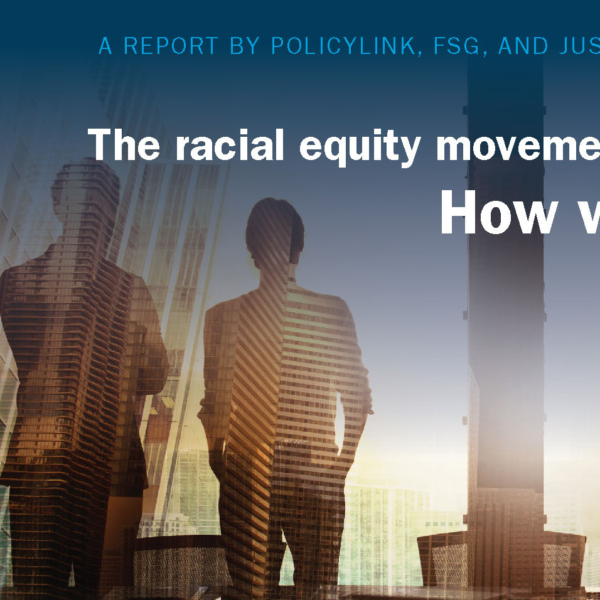B Corps Pursue Racial Equity Through External Advocacy and Internal Action
September 2, 2021
Mission-Driven Businesses Look to Spark Inclusive Change with Policies, Procedures, and Partnerships
The people who power Certified B Corporations — both as workers and customers — can drive change through businesses that pursue purpose as well as profit. For B Corps in the U.S. and Canada, this includes encouraging change externally and cultivating change internally to advance racial equity in a system designed to protect the powers that be and maintain the status quo. Public policy sets the rules by which private businesses can engage, making activism to shift those rules to be more equitable and inclusive a valuable and likely necessary task for B Corps and other system-changing organizations.
Additionally, the community of B Corps taking up this charge must work on its own inclusion. As Ben Anderson of B Lab U.S. & Canada said when outlining the organization’s theory of change: “We need to be a more diverse and inclusive B Lab and B Corp community. We need to create more equitable access to our community and need to be more relevant to diverse business leaders. We need to pilot a range of initiatives while following the leadership of people who have been doing this work, which will include partnering outside our community.”
Numerous B Corps already are piloting partnerships and leaning into corporate activism, building on their purpose to create change externally and internally — and inviting others to join them. A few examples — and ways for other businesses to follow suit by taking and driving action themselves — are highlighted below.
Advocating for Black Maternal Health and the Momnibus Act
For B Corp Happy Family Organics — part of parent company and fellow B Corp Danone North America — a mission to change the trajectory of children’s health through nutrition has evolved into advocacy for policies that support families and encourage climate action. Happy Family Organics was established in 2003 by founder Shazi Visram, a mother, Woman of Color, and activist who built a team with a foundation of acceptance of diversity.
Its latest advocacy project started in 2020, when Happy Family Organics learned of proposed federal legislation called the Black Maternal Health Momnibus Act that aligned with its business goals both in supporting maternal and infant health, and elevating efforts to support Black, Indigenous, and People of Color families in the United States. The Momnibus Act incorporates programs and supports to address a growing health risk in the United States, where maternal mortality rates increased by nearly 17% from 1990 to 2015 while the global rate fell 44%. That makes the United States the only developed country with a rising maternal mortality rate — even while it spends more on health care than any other nation.
Maternal mortality also is another area where health disparities are delineated by race: Black women in the U.S. are three to four times more likely to die from pregnancy-related complications, while Indigenous or Asian American and Pacific Islander mothers also have higher rates of mortality than white women during hospitalization for delivery.
In learning more about the legislation and the surrounding health and social issues, Happy Family Organics saw a need to get involved and signed on as a public endorser of the Momnibus Act in February 2021. Since then the B Corp has launched efforts to raise awareness of the legislation among its customers — many parents themselves — as well as its team and the families it serves so they can learn how to advocate for the legislation.
“Particularly related to topics like Black maternal and infant health, supporting policy change is an opportunity for our brand to make a longstanding impact for these birthing parents and their children,” says Marykate O’Boyle, Senior Mission Manager at Happy Family Organics.
Internally, that involves dedicated team members at Happy Family Organics who lead its social impact and sustainability initiatives and set company-wide goals related to the impact of this work. The B Corp often collaborates on advocacy efforts with nonprofit partners that provide critical expertise. For the Momnibus Act, Happy Family Organics has collaborated with longstanding partner March of Dimes to coordinate internal advocacy training and shared its Becoming an Advocate for Maternal Health of BIPOC Communities guide as an online public resource.

The Climate Justice Playbook for Business
This practical guide from B Lab that features information to help business leaders understand the intersection of climate action and social justice and advance a justice-centered approach to climate action.
Ready to Advocate? Here’s How to Get Started
Other B Corps looking to start or expand their advocacy efforts can start by looking back and pulling from the company’s initial purpose, O’Boyle says, or talking with community groups or other nonprofit partners to collaborate on relevant topics.
“A business looking to advocate for a cause that is in line with their company values and mission, particularly a B Corp, likely has more connections in that space than they might realize,” O’Boyle says. “Start within your own team to learn about experiences or network connections anyone might have to these causes that align with your business. Define the goals of your support for these issues, and establish a team to begin developing your action plan.”

Another avenue to explore is identifying officials who are key leaders in supporting an issue or bill and finding ways to connect with them to show support. Conversations like these can help inform what type of support is truly needed from businesses.
And the B Corp community, including resources from B Lab, provides another option for connecting, learning, and working with others on issues of common interest. “Find easy ways to flex your advocacy muscle using the resources you already have at your fingertips,” O’Boyle says.
Diversifying Boardrooms, A Blueprint for CEOs, and Other Initiatives for Racial Equity
With governance as a stakeholder, B Corps realize the power and importance of a company’s leadership and structure. Now, B Lab and members of the B Corp community are taking action for racial equity through partnerships and initiatives that demonstrate the power of collaboration.
One of those initiatives looks to change the makeup of boards at for-profit and nonprofit organizations so they better reflect the diversity of the U.S. people. Take Your Seat aims to reshape corporate governance and incorporate a broader range of voices and faces in boardrooms by connecting diverse board candidates with companies and organizations through online resources, events, and a directory
As John Replogle, a founding partner of Take Your Seat and board member at B Corp Leesa Sleep said during a recent Grow Ensemble podcast, “What we’ve done is we bankrupted [Black] families for generations because of the economic injustice. If we’re going to create real access and opportunity and wealth creation for Black families over time, business needs to lead the way.”
B Corps participating in Take Your Seat include Beautycounter, Seventh Generation, and Bombas.
Get involved: Learn more about Take Your Seat.
Another collaboration to advance racial equity practices and principles as a new standard in business involves B Lab, PolicyLink, JUST Capital, and FSG, which have joined forces to launch the Corporate Racial Equity Alliance. B Lab is a flagship partner to the Alliance and contributed to its new resource, The 2021 CEO Blueprint for Racial Equity.
Building off the foundation of the Blueprint, the Alliance aims to develop corporate performance standards for racial equity — one of three pillars for B Lab U.S. & Canada. B Lab will also leverage this partnership and incorporate the standards the Alliance is developing to update the B Impact Assessment.
The Blueprint includes examples of steps several B Corps have taken on their anti-racism journey. These include:
- Ben & Jerry’s co-founders, Ben Cohen and Jerry Greenfield, who are driving policy change to increase transparency and accountability for law enforcement through The Campaign to End Qualified Immunity.
- Fireclay Tile has launched and continues to expand its employee-ownership program, democratizing ownership and seeking to distribute wealth more equitably.
- Rhino Foods pioneered an Income Advance Program, providing small-dollar loans for its employees that transition into a savings program, and has since provided guidance for other companies interested in adopting the program.
Get involved: Learn more about The 2021 CEO Blueprint for Racial Equity.

The 2021 CEO Blueprint for Racial Equity
The 2021 CEO Blueprint for Racial Equity will guide you beyond diversity and inclusion commitments to the heart of the business opportunity ahead. Dive in to learn more.
Sign Up for our B The Change Newsletter
Read stories on the B Corp Movement and people using business as a force for good. The B The Change Newsletter is sent weekly.